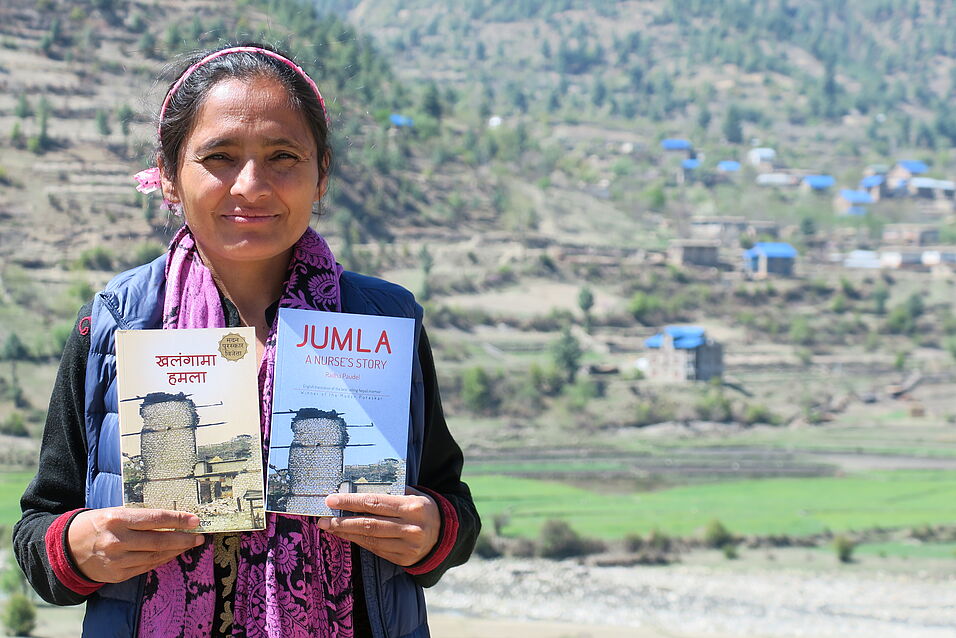The century-old practice of chāupaḍī – though recently banned by law in Nepal – is still practised in traditional families. Menstruating women are considered to be impure and forced to stay for a period up to five days in a small hut outside the house and to refrain from participating in the daily family life. They don’t get proper food during that time and have to endure cold temperatures in the winter and heat in the summer. This form of discrimination affects their health and psyche, leading to illnesses, injuries and depression, even to death. Radha Paudel herself had to follow these sets of restrictions during her childhood from the age of seven to 15 and she learned that menstruation is impure and a sin. To her, the absence of war is not peace at all because her internal or individual peace was destroyed by the never openly discussed agenda of menstrual discrimination.
Ms. Radha Paudel is an anaesthetic nurse, activist, author and poet. She has over 20 years of professional experience in various organizations, focused on managing emergencies. She transformed her experience of a huge massacre during Nepal’s civil war caused by a violent encounter between Maoist rebels and government forces into the novel "Khalangama Hamala" ("Attack in Khalanga"). The novel received the prestigious Nepal’s Madan Puraskar Literary Award in 2014. Other publications are "Dignified Menstruation is Everyone's Business" and "Steps for Peace" (poem). She is the first person to speak against menstrual restriction in Nepal as trainer, practitioners and researcher. Involved in many networks and organizations, she is currently working as founder president of Radha Paudel Foundation for human rights, peace, and empowerment through evidence based advocacy and business model.

